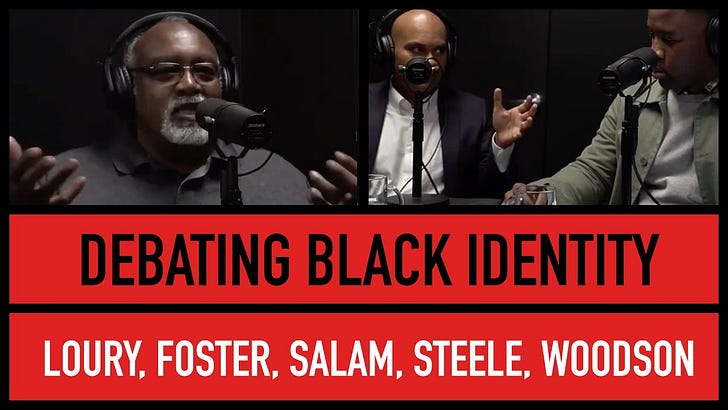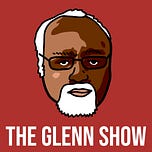On this episode of the Glenn Show, I am very proud to present a debate on “The Ethics of Black Identity” involving me, Kmele Foster, Shelby Steele, and Robert Woodson and moderated by Reihan Salam. This distinguished group of writers and thinkers convened (some of us remotely) in the studios of the Manhattan Institute on October 25. We discussed how we ought to think about the role of black identity now, in the year 2022, or indeed if black identity ought to have any continuing role in our political and social life in the US. We’re arranged in two teams arguing for two broadly construed positions. Bob Woodson and I defend black identity as a necessary element in political organization, community action, and historically embedded individual self-conception. Kmele Foster and Shelby Steele oppose the centrality of black identity in contemporary life, believing it to be a relic of a prior historical era best kept out of the public sphere today.
As you might expect, sparks fly. We all, of course, respect each other deeply, and there are many matters on which we agree. But this debate cuts to the core of questions of group identity and collective action, political efficacy and small-L liberalism, and the persistence of historical memory in the present. Is a strong sense of black identity necessary to help extricate vulnerable communities from the crises they currently face? Or is black identity a hindrance to progress and class transcendence? Can the history of blackness in America serve as a foundation for future prosperity? Or are we clinging to outmoded categories that limit our human potential?
It was an honor to host and participate in this scintillating exchange. I’ve been very anxious to show it to you all, and I’ll be watching the comments section closely to see what you think.
This post is free and available to the public. To receive early access to TGS episodes, an ad-free podcast feed, Q&As, and other exclusive content and benefits, click below.
Featured Content from City Journal
Naomi Schaefer Riley profiles how media and policymakers put “social justice” above child welfare.
0:00 What does “black identity” mean?
4:53 Why Bob left the Civil Rights Movement
8:04 Shelby: Our problem today is freedom, not racism
15:36 Glenn: We can’t afford to give up on black collective goals
21:30 Why Shelby wouldn’t sign a letter of support for Clarence Thomas
30:13 Would freeing ourselves from race mean sacrificing collective action?
39:10 The tactical efficacy of racial identification
44:32 The struggle for human freedom
50:46 Can we take pride in group achievements past?
1:02:22 Kmele: We have a too-narrow sense of diversity
1:07:20 Glenn: “The future is assimilation”
1:13:03 Concluding statements
Links and Readings
Kmele’s podcast, The Fifth Column
Glenn and Bob’s letter of support for Clarence Thomas
Thomas Chatterton Williams’s book, Self-Portrait in Black and White: Family, Fatherhood, and Rethinking Race














Share this post